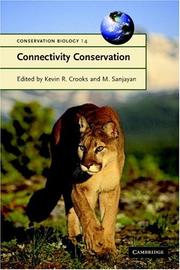| Listing 1 - 2 of 2 |
Sort by
|
Book
ISBN: 1108900011 1108903282 1108903703 1316514129 Year: 2023 Publisher: Cambridge : Cambridge University Press,
Abstract | Keywords | Export | Availability | Bookmark
 Loading...
Loading...Choose an application
- Reference Manager
- EndNote
- RefWorks (Direct export to RefWorks)
Complexity has received substantial attention from scientists and philosophers alike. There are numerous, often conflicting, accounts of how complexity should be defined and how it should be measured. Much less attention has been paid to the epistemic implications of complexity, especially in Ecology. How does the complex nature of ecological systems affect ecologists' ability to study them? This Element argues that ecological systems are complex in a rather special way: they are causally heterogeneous. Not only are they made up of many interacting parts, but their behaviour is variable across space or time. Causal heterogeneity is responsible for many of the epistemic difficulties that ecologists face, especially when making generalisations and predictions. Luckily, ecologists have the tools to overcome these difficulties, though these tools have historically been considered suspect by philosophers of science. The author presents an updated philosophical account with an optimistic outlook of the methods and status of ecological research.
Ecology --- Biocomplexity. --- Philosophy. --- Biological complexity --- Complexity, Biological --- Biology --- Biodiversity --- Ecophilosophy --- Complexity (Philosophy)

ISBN: 052167381X 0521857066 9780521673815 9780521673815 9780521857062 9780511754821 9780511349720 0511349726 0511348827 9780511348822 0511350600 9780511350603 0511754825 1107166497 1281085774 9786611085773 0511347871 0511568673 Year: 2006 Publisher: Cambridge : Cambridge University Press,
Abstract | Keywords | Export | Availability | Bookmark
 Loading...
Loading...Choose an application
- Reference Manager
- EndNote
- RefWorks (Direct export to RefWorks)
One of the biggest threats to the survival of many plant and animal species is the destruction or fragmentation of their natural habitats. The conservation of landscape connections, where animals, plants, and ecological processes can move freely from one habitat to another, is therefore an essential part of any new conservation or environmental protection plan. In practice, however, maintaining, creating, and protecting connectivity in our increasingly dissected world is a daunting challenge. This fascinating volume provides a synthesis on the current status and literature of connectivity conservation research and implementation. It shows the challenges involved in applying existing knowledge to real-world examples and highlights areas in need of further study. Containing contributions from leading scientists and practitioners, this topical and thought-provoking volume will be essential reading for graduate students, researchers, and practitioners working in conservation biology and natural resource management.
Biocomplexity. --- Biodiversity conservation. --- Biodiversity conservation --- 574.472 --- 502.7 --- Biological complexity --- Complexity, Biological --- Biology --- Biodiversity --- Biological diversity conservation --- Conservation of biodiversity --- Diversity conservation, Biological --- Gender mainstreaming in biodiversity conservation --- Maintenance of biological diversity --- Preservation of biological diversity --- Conservation of natural resources --- Ecosystem management --- Protection of animate nature. Wildlife conservation and protection --- Conservation --- 574.472 Biodiversity --- 502.7 Protection of animate nature. Wildlife conservation and protection --- Biocomplexity
| Listing 1 - 2 of 2 |
Sort by
|

 Search
Search Feedback
Feedback About
About Help
Help News
News